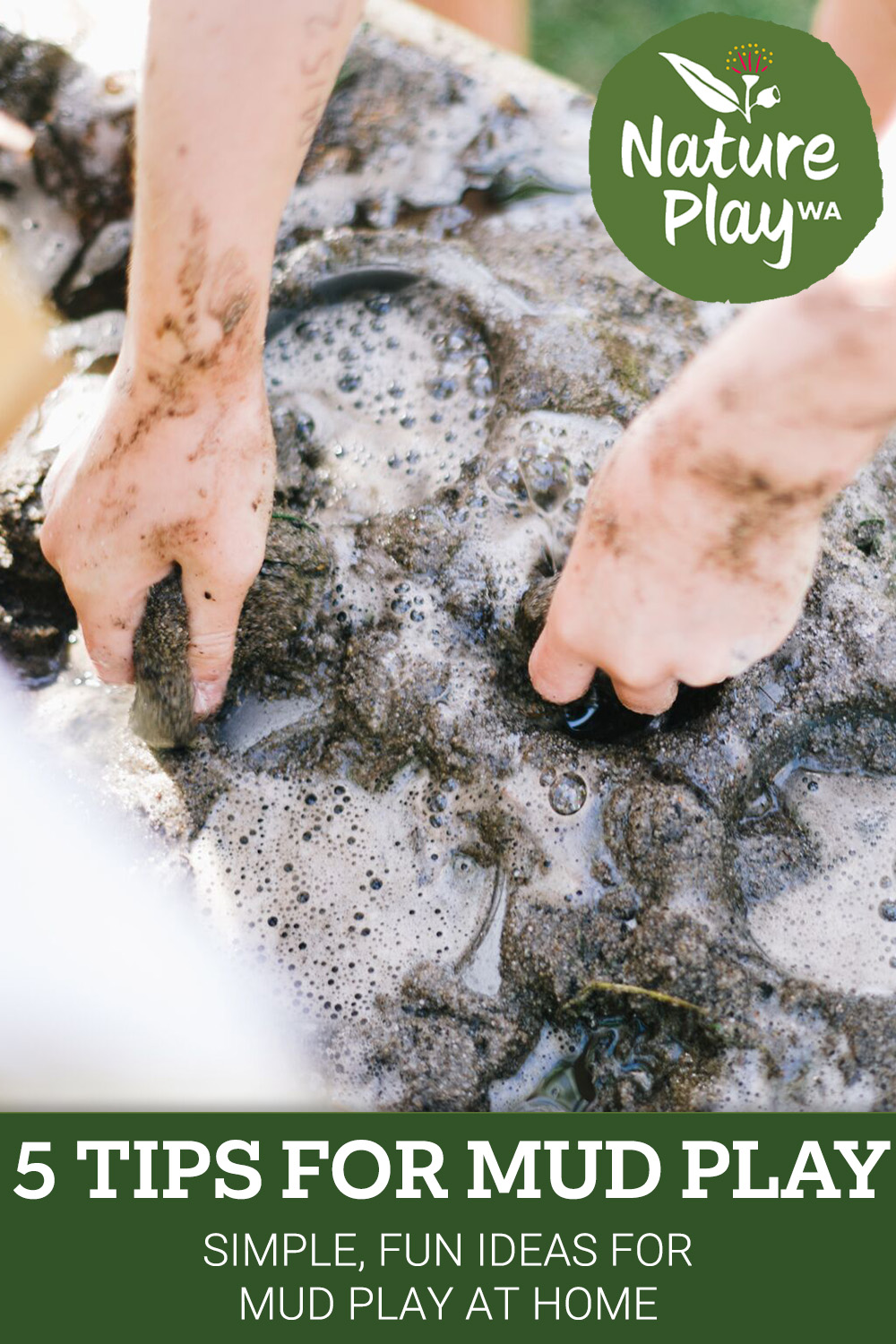From Microbes to Mindfulness: The Science of Mud Play for Kids
In Janeen Brian’s popular picture book, I’m a Dirty Dinosaur, an unnamed dinosaur does not like to bathe and delights in getting muddier and muddier! I love sharing the story with young children as it engages them on so many levels – through clever, simple rhyming prose, a very relatable character, and wonderfully creative pencil and real mud illustrations!
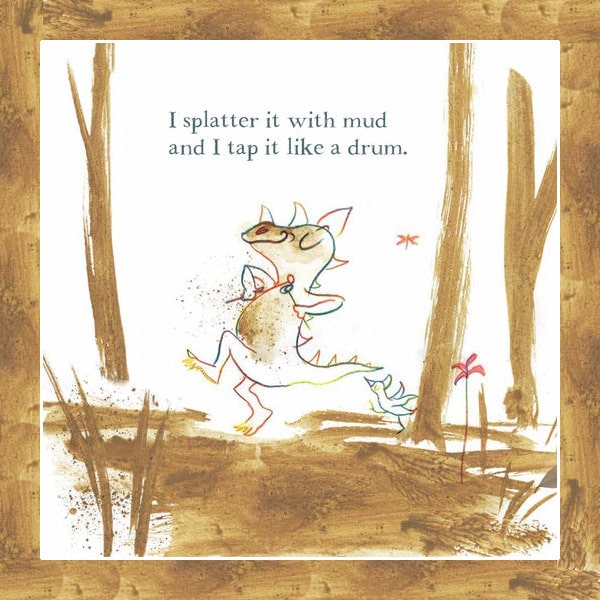
Children are intrinsically drawn to messy and muddy play but mud play is much more than simple, messy fun. The open-ended, sensory nature of mud play helps young children thrive across a myriad of essential developmental areas: in fact, it is a powerful pathway to creativity, imagination, physical health and skill development, and social emotional growth.
However, you don’t have to take my word for it! Scientific research attributes a wide range of developmental and physical benefits to mud play, thirteen of which are unpacked below.
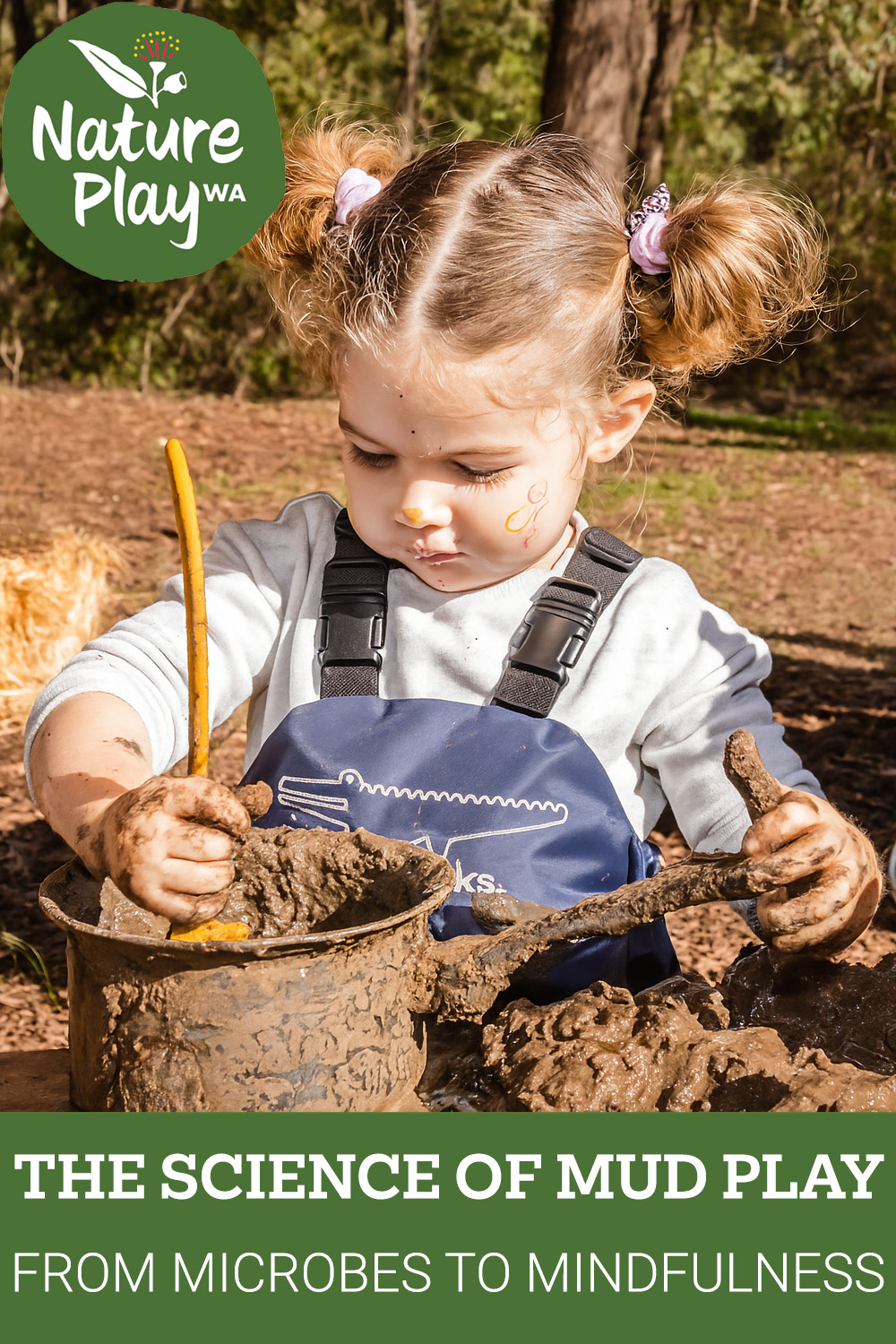
Unpacking the Science of Mud Play
#1 Mud play can make you happier
Research by Professor Christopher Lowry (at both the University of Bristol and the University of California Boulder) demonstrates that exposure to friendly soil bacteria (Mycobacterium Vaccae) stimulates the immune system, resulting in a release of serotonin by the brain. Serotonin is often referred to as the feel-good chemical, with imbalances in serotonin linked to depression, anxiety and poor sleep. Scientists theorise that regular exposure to mud can strengthen a child’s defenses against depression.
#2 Mud play can reduce stress
Outdoor play has been proven to have a measurable, restorative effect on children’s physiological stress levels and emotional well-being. In fact, restorative benefits are shown across all ages – especially when the play is free, nature‑based, and multi-sensory.
Maybe mud play is the nature prescription we all need to thrive in this busy, modern world!
#3 Mud play helps children learn to regulate emotions
The sensory, tactile nature of mud supports emotional regulation in young children through proprioceptive (muscle and joint pressure) and tactile (touch) stimulation, both of which are known to help regulate the nervous system. Activities like squishing, digging, patting, or moulding mud deliver deep pressure input, which helps children feel grounded and soothed – similar to the calming effect of weighted blankets or firm hugs.
#4 Mud play encourages mindfulness
The immersive, slow-paced nature of mud play encourages repetitive actions such as patting, squeezing and squishing, and this form of mindful engagement can help to reduce anxiety, regulate breathing, and shift focus away from causes of emotional overwhelm.
#5 Mud play can boost self esteem & resilience
As research demonstrates that autonomy-supportive environments foster resilience in early childhood, the self-directed nature of mud play fosters a sense of agency and competence in young children.
The unpredictable nature of mud as a material requires children to take on challenges, assess risk and solve problems, encouraging the development of perseverance and resilience.
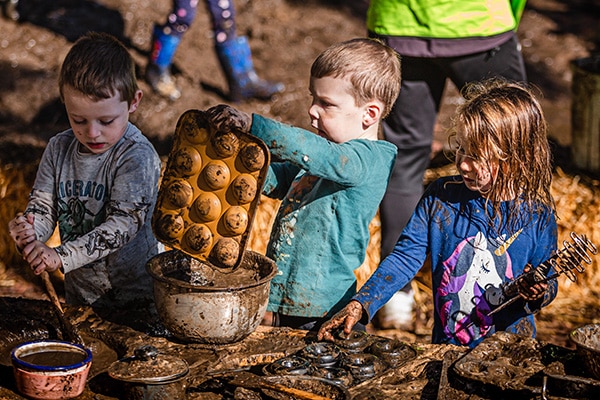
#6 Mud play stimulates brain development
Sensory integration is the neurological process by which the brain receives information from the senses (sight, sound, touch, taste, smell, proprioception, and vestibular input) and organises it for use in everyday activities – particularly movement, behaviour, and learning.
A child’s ability to learn, move, focus, and interact with the world relies on how well sensory information is integrated and used by the brain. Disorganised or poorly processed input can lead to developmental, behavioral, or learning challenges.
However, the brain can change and re-organise in response to experience. Repeated, diverse sensory experiences like mud play – especially during the early years – have been identified as powerful drivers of stronger sensory integration, across both typical and neurodivergent populations.
#7 Mud play inspires creative thinking skills
With no predetermined use, children can invent, adapt, and transform mud into almost anything – from mud pies to sculptures to landscapes. Like many natural materials, mud is also open-ended and unpredictable, encouraging invention, improvisation, adaptation, divergent thinking and imaginative problem-solving.
#8 Mud play helps improve physical skills
Whether it’s pouring, stirring and patting in a mud play kitchen or jumping, spinning and swishing through a mud puddle, children employ a wide range of fine and gross physical motor skills, including co-ordination, strength and balance, when playing with mud.
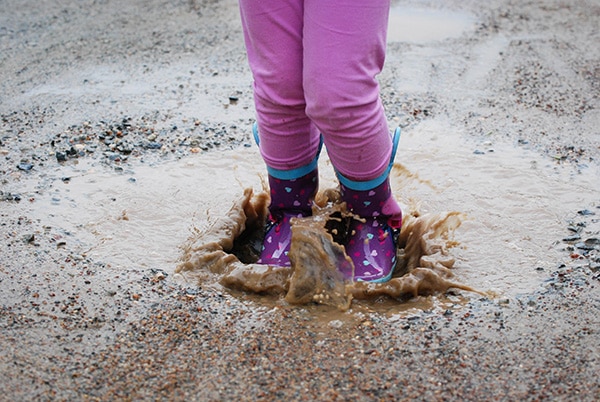
#9 Mud play supports understanding of scientific concepts
The simple act of mixing sand or soil with water invites exploration and observation of scientific concepts related to material properties, transformation, and floating and sinking. Through its tactile nature, mud play encourages concrete experimentation, providing children with an opportunity to experience what are often abstract, scientific concepts in hands-on play.
Children are also engaged in hypothesising, predicting, testing theories and forming conclusions as they play.
Mud play also provides children with real experience of basic science vocabulary – developing active understanding of words like thick, thin, sink, float, crumble, dry, wet and evaporate, pour, full and empty.
#10 Mud play develops mathematical thinking skills
When children scoop, pour, mix and create with mud they are developing foundational mathematical thinking skills essential to learning about capacity, volume, weight, comparison, counting and spatial awareness.
#11 Mud play enhances social skills
Playing and exploring together in mud kitchens and mud pits encourages children to negotiate, compromise, share ideas and express individual feelings, expanding both social skills and a range of communication skills.
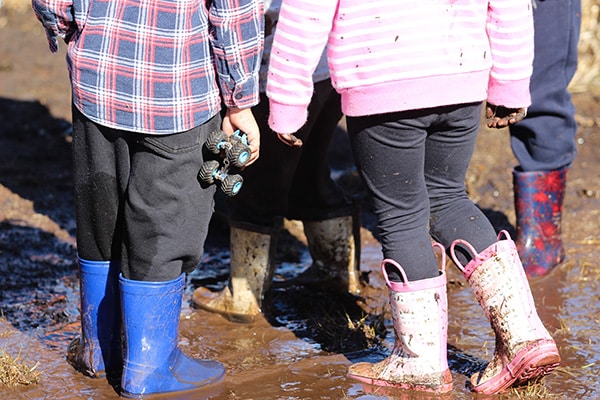
#12 Mud play promotes connection with nature
Mud play is a classic childhood experience that has the potential to create connection with the natural environment, strengthening a child’s awareness of, responsibility toward and enjoyment of time spent in nature.
#13 Mud play develops a healthier immune system
Unfortunately, society’s obsession with cleanliness has the potential to create a ‘dirt-deficiency’ for children, with research indicating potential health impacts across a range of conditions, including allergies, asthma and auto-immune diseases.
While a “dirt-deficiency” may equate to fewer muddy clothes, it can also mean missed opportunities for growth, development, immunity, and a lifelong bond with nature.
Providing children with the opportunity for messy play and permission to get dirty is essential to the developing immune system. Of course, just like in the story of the Dirty Dinosaur, there will come a time when clean up is necessary – but this can also be a positive sensory experience for children…when the adults involved allow it to be!
Ways to Get Started with Mud Play
Looking for inspiration for getting messy with mud play in your home or child care service? We make it easy with the tips and ideas included in these two related articles;


